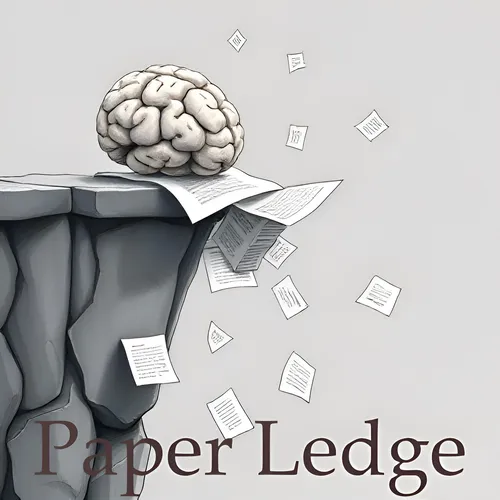Artificial Intelligence - SEAgent Self-Evolving Computer Use Agent with Autonomous Learning from Experience
- Author
- ernestasposkus
- Published
- Fri 08 Aug 2025
- Episode Link
- https://www.paperledge.com/e/artificial-intelligence-seagent-self-evolving-computer-use-agent-with-autonomous-learning-from-experience/
Hey Learning Crew, Ernis here, ready to dive into some seriously cool tech that's making computers smarter and more helpful. We're talking about giving computers the ability to learn how to use new software, all on their own!
So, imagine you get a brand-new app. You poke around, try things out, sometimes you mess up, sometimes you succeed. Eventually, you figure it out, right? Well, this paper explores how to teach computers to do the same thing. Traditionally, we've relied on humans to show computers exactly what to do, step-by-step, labeling everything. But what happens when the software is brand new, or super specialized, and there aren't any human guides? That's where this research comes in.
These researchers have developed something they call SEAgent. Think of it like a little digital explorer. It stands for "Self-Evolving Agent," and that's precisely what it does. SEAgent can explore new software, learn from its mistakes, and gradually get better at using it, all without needing a human teacher holding its hand.
Here's how it works: SEAgent uses what's called "experiential learning." Basically, it's learning by doing! It's like learning to ride a bike. You fall a few times, but eventually, you get the hang of it. SEAgent explores the software, tries different things, and learns from both its successes and failures. The research uses two key components to allow this:
- World State Model: This is like a checklist that SEAgent uses to evaluate what's happening at each step. It helps the agent understand if it's on the right track or if it's gone off course. It's like having a map that shows you where you are and where you need to go.
- Curriculum Generator: This is like a teacher that creates a series of tasks, starting with the easy stuff and gradually increasing the difficulty. It makes sure SEAgent isn't overwhelmed and learns things in a logical order. Think of it like learning math, you start with addition before you tackle calculus.
The agent's "brain," or its policy, gets updated based on these experiences. When it messes up, it tries to understand why and avoid making the same mistake again. When it succeeds, it reinforces those actions. To make this learning even faster, they've also incorporated something called "Group Relative Policy Optimization," which basically means the agent learns from the successes of other similar agents.
But here's the really cool part. The researchers also used a "specialist-to-generalist" approach. They trained a bunch of "specialist" agents, each focused on mastering a specific part of the software. Then, they combined all their knowledge into a single, "generalist" agent. This generalist agent turned out to be even better than the individual specialists at their own specialties! It's like assembling a super-team of experts, then creating a single, even more powerful hero.
They tested SEAgent on five different software environments within something called "OS-World." And guess what? It blew the competition out of the water! It improved the success rate by a whopping 23.2% compared to another open-source computer use agent. That's a huge leap!
“Our approach achieves a significant improvement of 23.2% in success rate... over a competitive open-source CUA.”
So, why does this matter? Well, think about it. If computers can learn to use new software on their own, it opens up a world of possibilities.
- For developers: It means they can create more complex and specialized software without having to worry about creating detailed tutorials or training materials.
- For businesses: It means they can adopt new technologies more quickly and efficiently, without having to spend a lot of time and money on training.
- For everyone: It means we can have more powerful and user-friendly software that adapts to our needs, not the other way around.
This research is a big step towards creating truly intelligent and adaptable computer systems. It’s like giving computers the ability to learn and grow, just like us!
Now, I'm curious to hear your thoughts.
- Could approaches like SEAgent eventually lead to computers being able to troubleshoot their own problems, without any human intervention?
- What are the ethical implications of having computers that can learn and adapt so autonomously? Could this lead to unintended consequences?
Let me know what you think, Learning Crew! Until next time, keep exploring!
Credit to Paper authors: Zeyi Sun, Ziyu Liu, Yuhang Zang, Yuhang Cao, Xiaoyi Dong, Tong Wu, Dahua Lin, Jiaqi Wang
